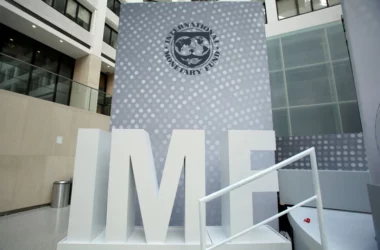
On this wonderful day I say a Happy Women’s Day to all the women of the Gambia and women around the world. Special mention goes to my daughter, my wife and my mother.
We celebrate the women in our lives. They are the cornerstones of our communities working tirelessly and making countless differences in the lives of those around them. We celebrate in spirit with all our mothers, sisters and wives, those in small remote villages, and refugee camps; those living in mud and straw thatched homes, large urban cities, and rural countryside; those in the workplace, the poor, the rich, and unemployed; those in madrassas, schools, colleges and universities; those mothers working and those who do both; those who are single, married, divorced or widowed; those who are young, older or physically disabled; and those whom we know are strangers.
Today we celebrate and honor: the women of the past: those who stood up for change and fought for the rights that we live and enjoy today; the women of the present: those women who use their voice to help make our world a better place for women; and the women of the future: those who will continue to champion women’s voices, to break barriers and keep visible women’s achievements and plights.
There are so many unsung women within our communities who have touched the lives of others in their own special way. Let’s celebrate them, Let’s recognized them and let’s appreciate their efforts to try and make this world a better place to live.
May this day remind all our women to choose to rise above their challenges and harness the opportunities that abound in the world of commerce, entrepreneurship and leadership. May our women refuse to be looked down upon and may they embrace achievement and success in equal measure and in triumph.
My thoughts are that the cardinal objective of the International Women’s Day is to celebrate the struggle for women’s rights in the economic, social, political, and cultural domain. I firmly believe that economic development through a woman’s eyes brings a valuable perspective, one which has often been ignored in our historical role of women leadership. The Gambia ranks 44 amongst African nations in its representation of women at the national level in implementing the principle of Gender Parity as provided for by the African Union in the Solemn Declaration on Gender Equality in Africa (SDGEA), number 45 (2018) respectively.
Women’s full participation in political and electoral processes has its origins in the principles of non-discrimination and equal enjoyment of political rights enshrined in the Universal Declaration of Human Rights (UDHR) adopted in 1948. Women’s empowerment and gender equality is a Sustainable Development Goal. A minimum female participation of 30 percent in representative assemblies is also the target of the 1995 Beijing Platform for Action.
There is no doubt that democracy in the Gambia would be strengthened if it were to be more reflective of the demographics of this country and more representative of the majority. At present women comprise 50.5 percent, according to the 2013 census of the nation’s population, yet they are vastly under-represented in government. Only 3 positions in the 15 members are held by women in Cabinet, and until recently, only 4 women serve in the 58 National Assembly of Representatives.
Nationally, only 3 of all elected officials are women. Of the 5 regional governors 1 is a woman, and in our nation’s history, only 1 woman serving as mayoress in the capital city, Banjul. This is particularly not remarkable. At local level, representation of women has dropped dramatically. It is this pipeline that provides the most critical conduit for state and local representation. If we are to fuel this pipeline. We will need all the help we can get to reframe, reinvigorate and support local strategies to foster the entry of women into positions of leadership. If we are successful, we will inevitably change the face of government in the Gambia.
We believe that the time has come to change the face of the Gambia’s political leadership. To this end, President Barrow should launch a new initiative about women’s political leadership in appointment and elective positions. This primary goal is to inspire a national movement to increase the number of women in politics in this country. However, as we might all testify, President Adama Barrow’s overarching leadership theme has not recognized the importance of women’s representation, empowerment and political participation in the perceived impact of identity structures of leadership and he will be remembered as someone who truly does not championed women’s empowerment. President Barrow and his government has not fully embraced the idea that the greatest strategic prize for the Gambia is the full social, political and economic empowerment of women.
Collective, the Gambia government just want to talk” about gender equality, Gambian women want to see meaningful real women empowerment and political participation. So, when will the government commit to reaching this far destination, a place where women and men are presented with equal opportunities and are truly equals? Equals who walk side by side in pursuing the safer, freer and a more prosperous Gambia that we all want to live in diversity.
Consensus building globally enables women play pivotal roles as agents of change in their societies. Increasingly, women collaborate within and across their borders to reach their full political and economic potential, imperative of cultural differences. During the last decades, many nations have recognized the power of women as a force for social change and have embraced mandates to include substantial number of women in government.
Today, we celebrate to make women of the past proud, the women of the present inspired, and provide the women of the future with vision












